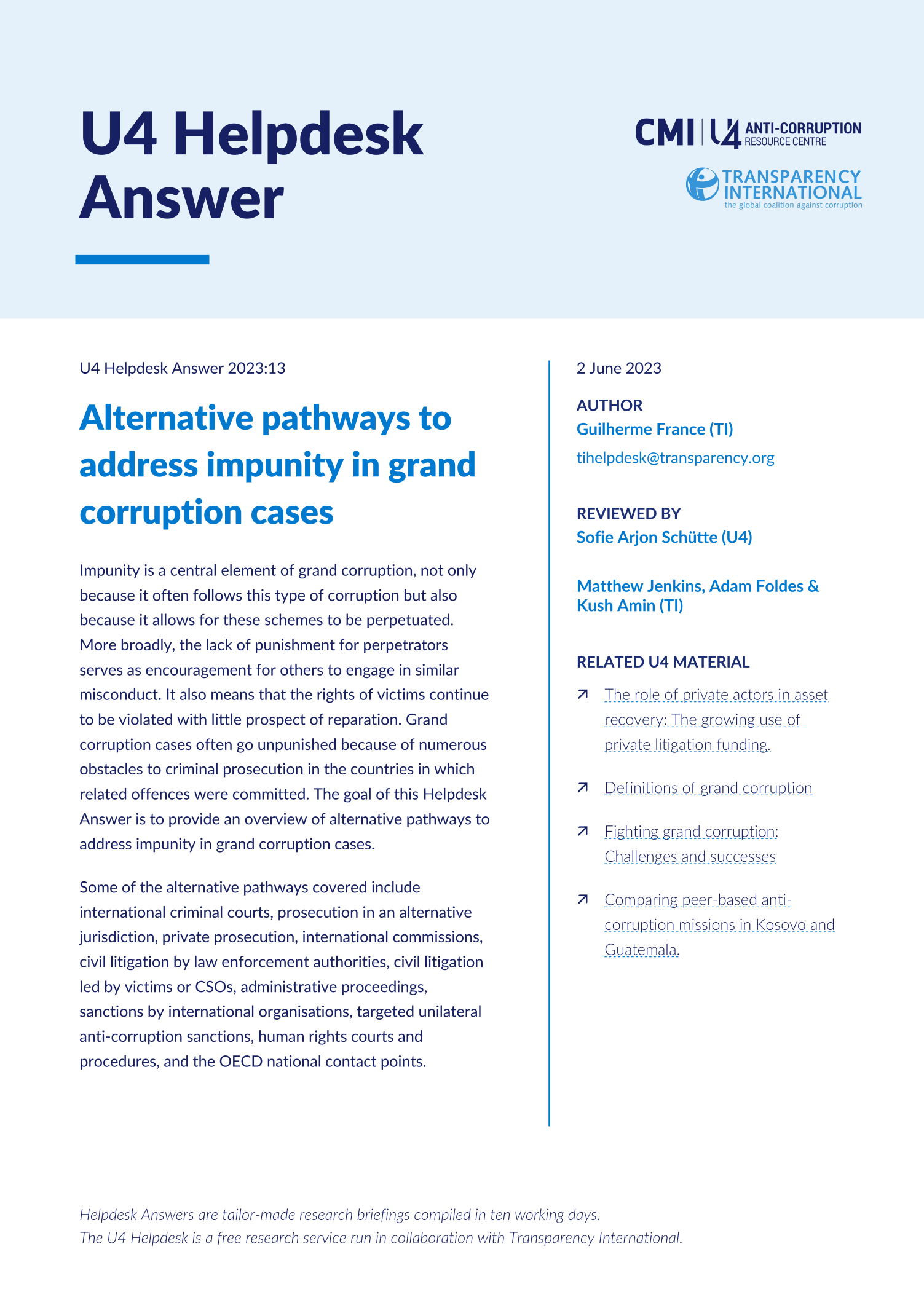Main points
- Grand corruption cases often go unpunished because of numerous obstacles to criminal prosecution in the country in which offences were committed.
- Common obstacles include a lack of resources, different criminal policy priorities, various forms of undue influence and corruption, weak legal frameworks and constrained independence of oversight, enforcement and justice institutions.
- Alternative pathways to address impunity can be found in both criminal prosecution and civil litigations, as well as in non-judicial mechanisms.
- For example, international criminal courts, prosecution in an alternative jurisdiction, private prosecution, international commissions, civil litigation by law enforcement authorities, victims or CSOs, administrative proceedings, sanctions by international organisations or individual countries.
- Human rights legal instruments and tools provide some mechanisms to address impunity and ensure the victim’s right to reparation.



